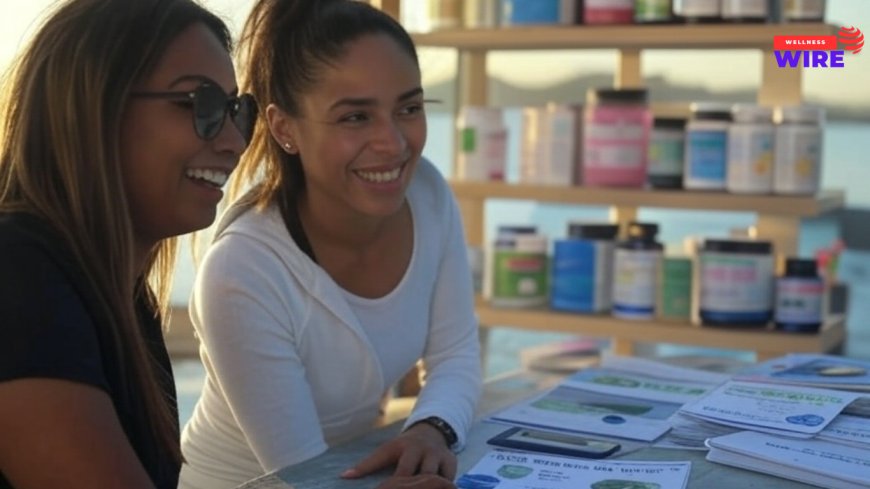The Dark Side of Wellness Influencers: How Misinformation and Viral Trends Are Harming Public Health
Wellness influencers are shaping health trends, but many promote misinformation. Discover the dangers of viral health fads and how to spot false claims.

Introduction: The Rise (and Risks) of Wellness Influencers
Social media has transformed the wellness industry. With a single post, an influencer can spark global trends in fitness, nutrition, mental health, and even alternative medicine. Platforms like Instagram, TikTok, and YouTube have given rise to self-proclaimed health gurus promoting everything from detox teas to raw food diets and even unverified medical treatments.
But behind the aesthetically pleasing content and "miraculous" health hacks, there’s a darker reality: misinformation. Many wellness influencers lack scientific training, yet their advice reaches millions. This has led to dangerous health fads, misused supplements, and in some cases, serious medical consequences.
So, what happens when wellness influencers get it wrong? And how can we distinguish credible health advice from harmful pseudoscience?
The Problem: When Wellness Meets Misinformation
The wellness industry is worth over $4.5 trillion globally, according to the Global Wellness Institute. With such high stakes, brands and influencers capitalize on trends to sell products—often with little to no scientific backing.
Here’s how misinformation spreads in the wellness space:
1. Unregulated Claims About Diets and Supplements
Many influencers push extreme diets or supplements without considering individual health needs. Examples include:
- Alkaline Diets – Promoted as a cure for diseases, but studies from Harvard Medical School show no scientific evidence supporting claims that diet changes can "alkalize" the blood.
- Detox Teas and Juices – Marketed as "body cleansers," these often contain laxatives that can lead to dehydration and nutrient loss, as warned by the Mayo Clinic.
- Collagen Supplements for Skin and Hair – While collagen is important, not all supplements work as advertised. The body naturally produces collagen when given proper nutrition, not just from pills or powders.
2. Viral "Biohacking" Trends With No Scientific Backing
Biohacking—the practice of optimizing health through unconventional methods—has exploded online. While some techniques are science-backed (such as intermittent fasting), others are questionable, including:
- Sun Gazing – Some influencers claim looking at the sun improves eyesight and mental clarity. In reality, it can cause permanent eye damage, according to the American Academy of Ophthalmology.
- Raw Food Diets – Promoted as "natural," raw diets can increase the risk of foodborne illnesses and nutrient deficiencies, per the Cleveland Clinic.
- Ice Baths for Weight Loss – Cold therapy has benefits for muscle recovery, but it does not burn fat as influencers claim, per research from Stanford Medicine.
3. Fear-Mongering Against Modern Medicine
One of the most dangerous aspects of wellness influencers is the rejection of conventional medicine in favor of "natural" alternatives. This includes:
- Anti-Vaccine Movements – Some influencers promote vaccine hesitancy, despite overwhelming evidence from the CDC proving vaccines save lives.
- Misinformation About Prescription Medications – Influencers often demonize pharmaceuticals without understanding how they work, leading followers to abandon necessary treatments.
- Cancer Cure Hoaxes – Some claim that cancer can be cured through diet or mindset alone, despite scientific evidence proving the need for medical treatment.
4. The Financial Incentive: Monetizing Misinformation
Many influencers profit from false health claims by selling products, including:
- Affiliate links for unverified supplements
- Paid promotions of "miracle" wellness products
- Exclusive memberships for "secret" health protocols
This creates a conflict of interest—instead of promoting real health solutions, influencers push what sells.
Real-Life Consequences: When Wellness Misinformation Turns Harmful
The impact of wellness misinformation isn’t just theoretical. Here are real cases of people harmed by misleading advice:
- The Raw Vegan Tragedy – Influencer Zhanna D’Art, a raw vegan advocate, reportedly died from malnutrition after following an extreme raw diet for years (source).
- The Liver King Lawsuit – Brian Johnson, known as "Liver King," promoted an ancestral diet while secretly using steroids, misleading thousands who believed his diet alone built his physique (source).
- Essential Oils as Medicine – Influencers have claimed that essential oils cure diseases, leading to cases of toxic poisoning when people ingested them improperly (source).
How to Spot Wellness Misinformation
To protect yourself from false wellness claims, follow these steps:
1. Check the Credentials
Is the influencer a registered dietitian, doctor, or scientist? If not, take their advice with caution.
2. Look for Scientific Evidence
Reliable health claims are backed by peer-reviewed research from institutions like:
3. Beware of “Miracle Cures”
If something sounds too good to be true, it probably is.
4. Identify Conflicts of Interest
If an influencer sells a product they promote, their claims might be biased.
5. Consult a Real Expert
Before making major health decisions, always check with a medical professional.
The Future of Wellness: Can Social Media Be a Force for Good?
While misinformation is a major problem, not all wellness influencers are bad. Some use their platforms responsibly, sharing science-backed health tips and encouraging balanced lifestyles.
How social media can improve wellness education:
- Platforms enforcing stricter guidelines on health-related content
- More collaborations between medical professionals and influencers
- Better education on media literacy so users can spot misinformation
Final Thoughts: Question Everything, Trust Science
The wellness industry isn’t inherently bad, but social media has made it easier than ever to spread misinformation disguised as health advice. As consumers, we must be vigilant—always fact-checking claims, prioritizing scientific evidence, and seeking advice from qualified professionals.
Wellness should be about empowerment, not exploitation. By being mindful of where we get our information, we can make better choices for our health—without falling for harmful trends.
What's Your Reaction?
 Like
0
Like
0
 Dislike
0
Dislike
0
 Love
0
Love
0
 Funny
0
Funny
0
 Angry
0
Angry
0
 Sad
0
Sad
0
 Wow
0
Wow
0



















































